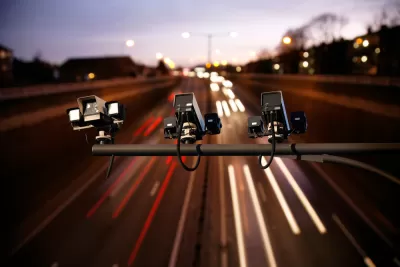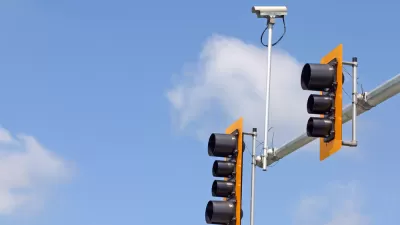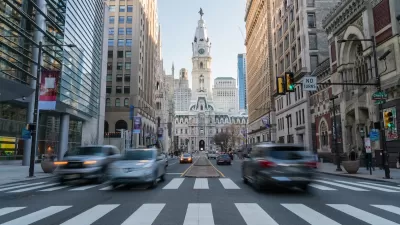City officials say an automated traffic enforcement pilot program has reduced speeding and crashes along the corridor where cameras were installed.

Local leaders in Philadelphia are calling on the state to renew legislation that would allow the city to continue its speed camera program, which the city says reduced speeding violations by 93 percent, writes Beccah Hendrickson for ABC 6. “The city also argues the cameras are making the boulevard safer. In 2019, there were 510 crashes along the road, which dropped to 360 in 2020 after the cameras were installed.”
Critics of the program say the cameras unfairly cite drivers and put a burden on low-income residents, but city leaders want to install them on more streets. The program has collected $22.8 million in fines since 2020.
Speed cameras have proven to be a divisive issue among traffic safety advocates, residents, and policymakers. While some argue that automated enforcement improves safety and reduces the need for personal interactions between drivers and law enforcement, others say they unfairly target communities of color and put undue financial burdens on residents who can become trapped in a cycle of debt. Others have pointed out that results from speed camera programs correlate with infrastructure—that is, communities that lack safe crosswalks, sidewalks, and traffic calming measures are likely to see more speeding tickets, highlighting a need for more robust and equitable investment in road safety projects.
FULL STORY: Philadelphia officials say speed camera pilot program on Roosevelt Boulevard is working

Maui's Vacation Rental Debate Turns Ugly
Verbal attacks, misinformation campaigns and fistfights plague a high-stakes debate to convert thousands of vacation rentals into long-term housing.

Planetizen Federal Action Tracker
A weekly monitor of how Trump’s orders and actions are impacting planners and planning in America.

Chicago’s Ghost Rails
Just beneath the surface of the modern city lie the remnants of its expansive early 20th-century streetcar system.

Bend, Oregon Zoning Reforms Prioritize Small-Scale Housing
The city altered its zoning code to allow multi-family housing and eliminated parking mandates citywide.

Amtrak Cutting Jobs, Funding to High-Speed Rail
The agency plans to cut 10 percent of its workforce and has confirmed it will not fund new high-speed rail projects.

LA Denies Basic Services to Unhoused Residents
The city has repeatedly failed to respond to requests for trash pickup at encampment sites, and eliminated a program that provided mobile showers and toilets.
Urban Design for Planners 1: Software Tools
This six-course series explores essential urban design concepts using open source software and equips planners with the tools they need to participate fully in the urban design process.
Planning for Universal Design
Learn the tools for implementing Universal Design in planning regulations.
planning NEXT
Appalachian Highlands Housing Partners
Mpact (founded as Rail~Volution)
City of Camden Redevelopment Agency
City of Astoria
City of Portland
City of Laramie





























